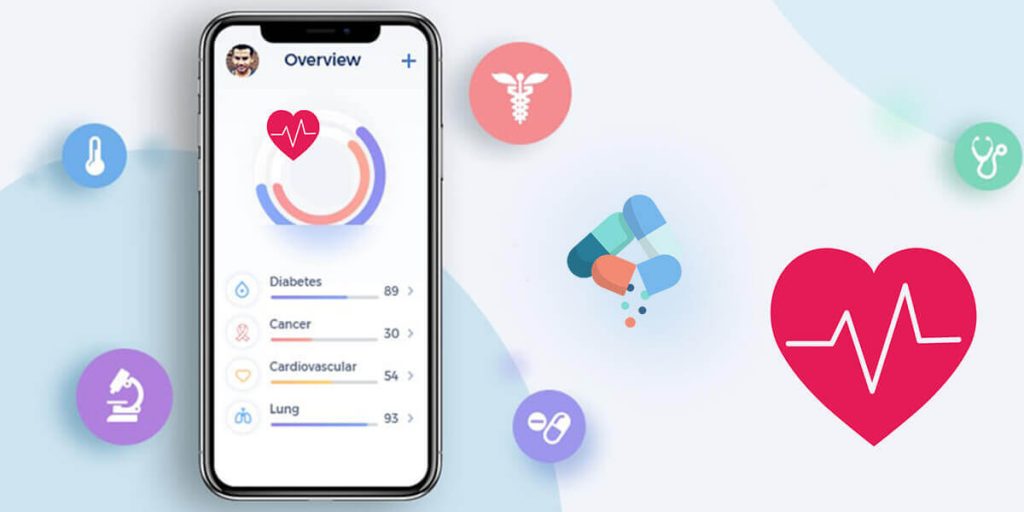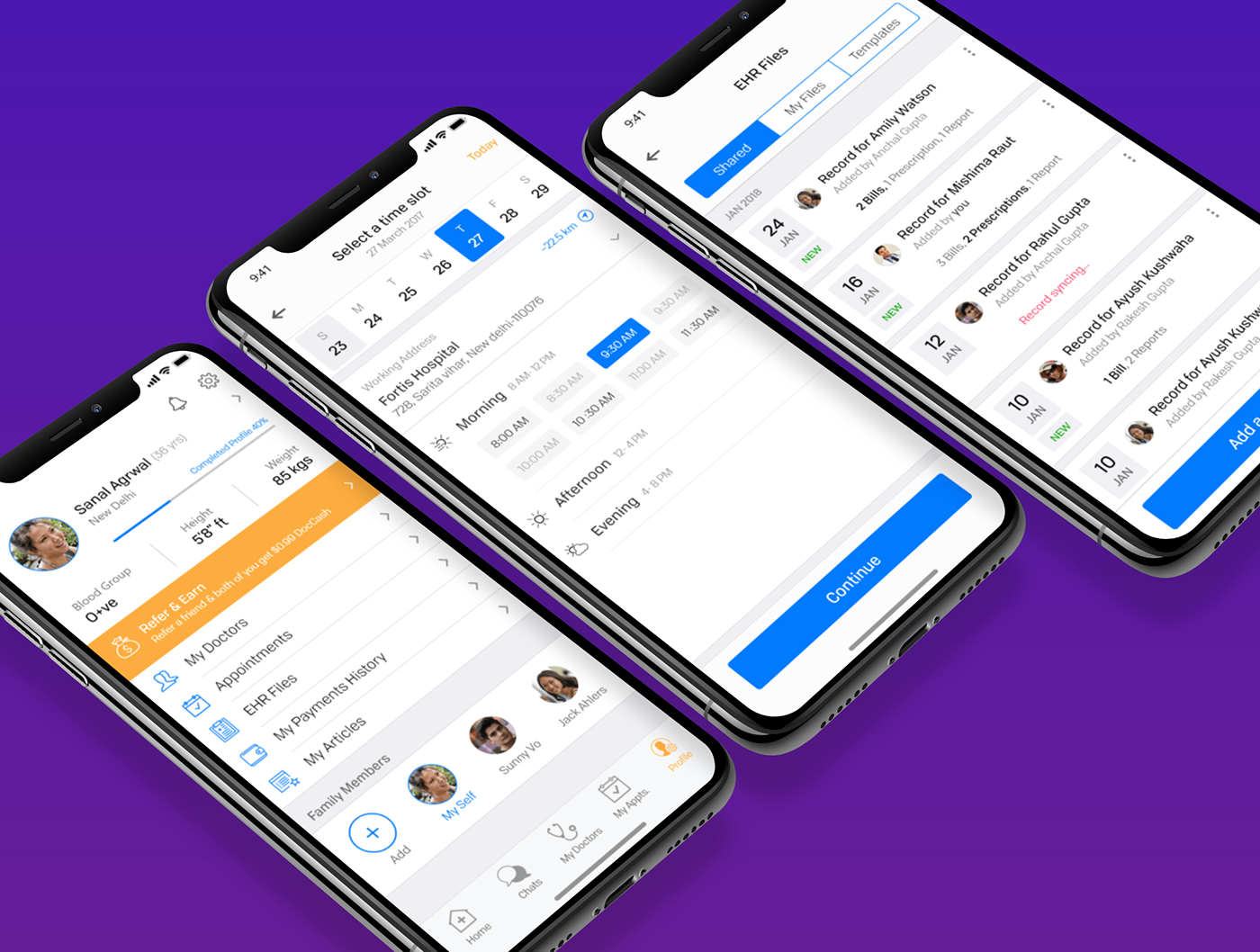Ideal Practices for Establishing a Mobile App for Clinics That Fulfills Patient Needs
Ideal Practices for Establishing a Mobile App for Clinics That Fulfills Patient Needs
Blog Article
The Future of Healthcare: Why Clinics Required a Mobile App Today
As the healthcare landscape proceeds to evolve, centers face mounting pressure to adapt to individual assumptions for higher comfort and access. The assimilation of mobile applications can serve as a crucial technique for improving person interaction and improving operations.
Transforming Person Assumptions
As the landscape of healthcare advances, patient assumptions are going through a substantial change. Today's individuals are increasingly looking for comfort, ease of access, and individualized treatment.
Furthermore, individuals are coming to be extra informed and empowered, usually looking into treatments and problems online prior to appointments. This heightened recognition is coupled with a need for openness in healthcare processes, consisting of expense price quotes and treatment alternatives. Therefore, providers are obliged to adjust by adopting electronic devices that enhance the client experience.
The assumption for timely and effective communication has never ever been higher, with numerous clients taking into consideration responsiveness a vital element of top quality care. mobile app for clinics. In this developing landscape, medical care companies have to acknowledge these transforming expectations and take advantage of mobile applications to foster an extra patient-centric strategy, making sure that they not just fulfill yet surpass the criteria set by today's enlightened consumers
Enhancing Individual Involvement

Mobile applications assist in communication in between clients and healthcare suppliers, allowing real-time consultation organizing, suggestions for medication adherence, and direct messaging attributes. These capabilities not just enhance benefit yet likewise develop a feeling of accountability among individuals. Mobile applications can offer educational material tailored to specific needs, aiding people much better recognize their conditions and therapy options.
The integration of gamification aspects within health care apps can additionally encourage people to engage in healthy actions, enhancing positive lifestyle changes. By tracking progress and fulfilling achievements, people are most likely to remain devoted to their health and wellness goals. Ultimately, boosting individual involvement via mobile applications leads to boosted health results, higher client satisfaction, and a more joint medical care experience. Clinics that prioritize this aspect will likely see a substantial influence on the top quality of care delivered.
Simplifying Clinic Operations
Simplifying center operations is necessary for enhancing operations efficiency and maximizing individual treatment. The application of mobile applications can substantially reduce administrative burdens, enabling doctor to concentrate much more on person communications. By automating appointment organizing, client check-ins, and invoicing processes, facilities can reduce wait times and enhance total operational efficiency.
Mobile applications also promote real-time accessibility to client documents, allowing medical care specialists to make informed choices rapidly. This immediacy not only boosts the high quality of treatment but likewise decreases the possibility of mistakes connected with lost or outdated information. Furthermore, leveraging Check Out Your URL mobile modern technology supports a more orderly technique to managing patient follow-ups and therapy plans, making sure that no essential steps are ignored.
In addition, mobile applications can streamline supply administration by providing clinics with devices to check drugs and supplies effectively. This allows for timely replenishment and aids avoid disruptions in client care because of equip scarcities. By integrating these performances right into their day-to-day operations, facilities can develop a much more effective and natural setting, inevitably bring about enhanced individual end results and complete satisfaction. Embracing mobile modern technology is not simply a pattern; it is a necessary evolution in the healthcare landscape.
Improving Communication Networks
Reliable interaction is often mentioned as a keystone of high quality health care distribution. In today's hectic clinical atmosphere, mobile applications can navigate to this site significantly improve interaction channels in between facilities, patients, and doctor. By incorporating mobile apps into their procedures, centers can help with real-time communications, making pop over to this site certain that individuals get prompt information regarding their visits, test outcomes, and treatment strategies.
Mobile applications additionally encourage individuals to connect directly with their medical care teams via secure messaging features. This straight line of communication promotes a feeling of involvement and enables for instant clarification of worries, which can bring about much better adherence to treatment procedures. Moreover, push alerts can remind clients of upcoming consultations or medicine schedules, reducing no-show prices and improving total health and wellness outcomes.

Remaining Competitive in Health Care
In a rapidly progressing medical care landscape, companies should focus on advancement and versatility to maintain an one-upmanship. The integration of mobile applications right into health care solutions is no more optional; it is essential for facilities aiming to improve patient involvement, improve procedures, and boost overall solution distribution.
As patients significantly count on digital platforms for health and wellness administration, centers that fail to embrace mobile innovation threat falling back. A properly designed mobile application can supply features such as consultation scheduling, telemedicine consultations, and accessibility to clinical records, giving clients with ease and cultivating commitment.

Competitors are likewise spending in mobile remedies, so staying ahead requires constant renovation and staying notified concerning technical advancements. Clinics need to not just carry out mobile applications however additionally participate in routine updates and refinements. Ultimately, the successful integration of mobile modern technology will certainly differentiate forward-thinking medical care companies and established the standard for patient-centric care in an electronic globe.
Final Thought
Finally, the combination of mobile applications in clinics is vital to deal with the developing landscape of patient expectations. By improving client involvement, simplifying procedures, and enhancing interaction networks, clinics can substantially increase health and wellness outcomes. Furthermore, the adoption of mobile technology positions clinics to continue to be competitive in an increasingly digital medical care atmosphere. Inevitably, the strategic application of mobile applications represents an essential action toward delivering easily accessible and tailored health care, consequently meeting the requirements of today's equipped people.
Eventually, improving client involvement via mobile applications leads to improved wellness results, greater client contentment, and an extra collective health care experience.Mobile applications additionally facilitate real-time accessibility to individual records, allowing health care specialists to make enlightened decisions quickly. In today's busy medical environment, mobile applications can considerably boost interaction networks between clinics, people, and healthcare carriers.Mobile applications additionally encourage clients to interact directly with their health care teams through protected messaging functions. Eventually, the critical implementation of mobile applications represents a vital step toward delivering accessible and customized healthcare, thus satisfying the demands of today's equipped clients.
Report this page